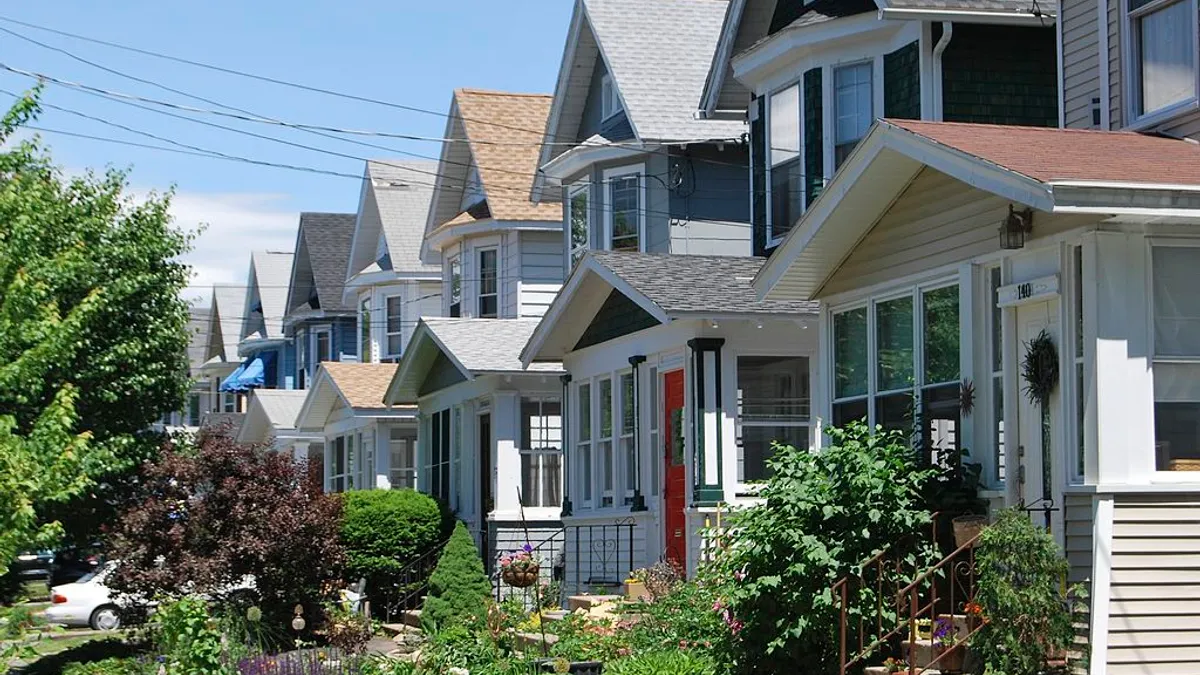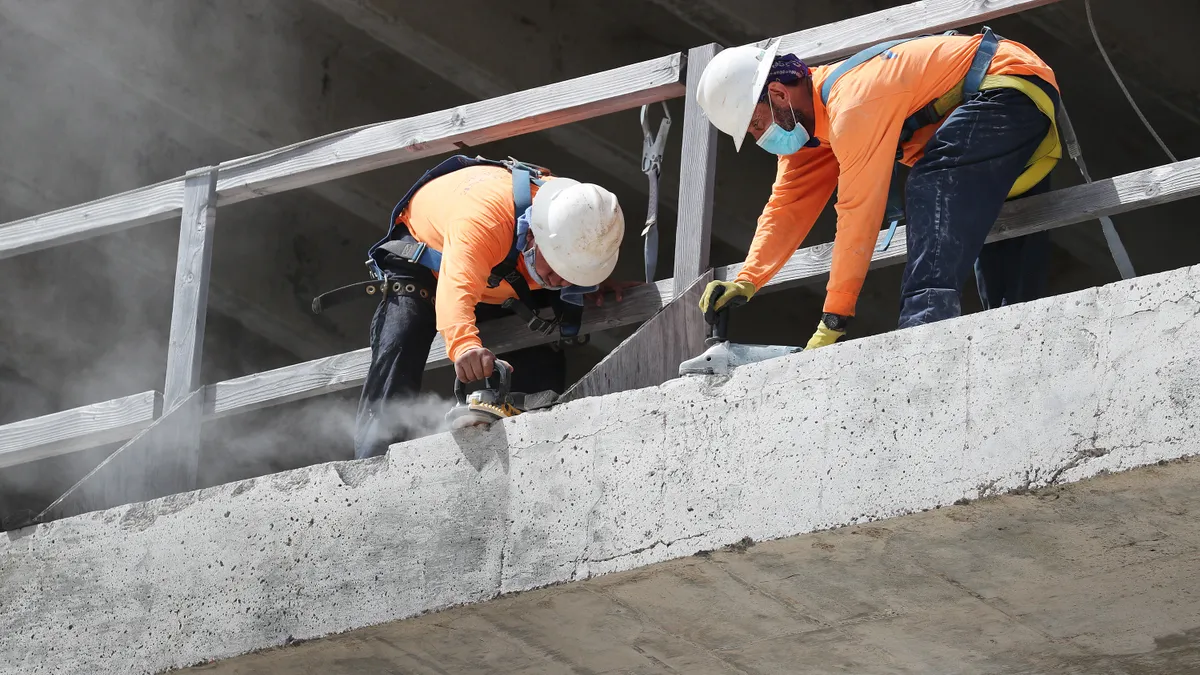Dive Brief:
-
U.S. homes are less affordable now than they were before the general election, driven higher by mortgage interest rates up roughly 50-basis points since Nov. 8, according to a new report from Black Knight Financial Services.
-
Black Knight notes that the jump in the post-election interest rate has resulted in the average home price up $16,400 from before the election — an extra $60 per month in principal and interest payments, HousingWire reported.
- Therefore, buying a median-priced home now requires 21.6% of the median monthly income. The share is the highest since June 2010, albeit still low by historical standards. However, home prices today are 20% higher.
Dive Insight:
Historically low mortgage rates have been a driving factor in getting new buyers, especially younger first-timers, into the market.
But industry observers are growing increasingly concerned by the recent rate increase as impacting not only the number of new buyers but also the volume of existing homeowners seeking to refinance their mortgages. The number of potential refinance candidates fell by more than 50% within three weeks of the U.S. presidential election, according to Black Knight.
In an interview with Construction Dive last month, Realtor.com Chief Economist Jonathan Smoke noted that the market may double back on its strong reaction to the election results and contingent inflation fears, opening a window wherein access to credit improves. Black Knight said home prices may pull back on the recent rate rise, following a similar pattern to late 2013.
However, the strong likelihood that the Federal Reserve will raise its benchmark interest rate before the end of the year is expected to impact mortgage rates and raise borrowing costs for homebuilders.
Any rise in mortgage rates could dampen expectations of younger first-time buyers entering the market next year in greater numbers as they already struggle to secure loans amid tight lending conditions and high home prices.
Millennials are expected to account for 33% of homebuyers next year, while baby boomers are set to account for 30% of the market, according to Realtor.com’s 2017 Housing Forecast.
For more housing news, sign up for our daily residential construction newsletter.













